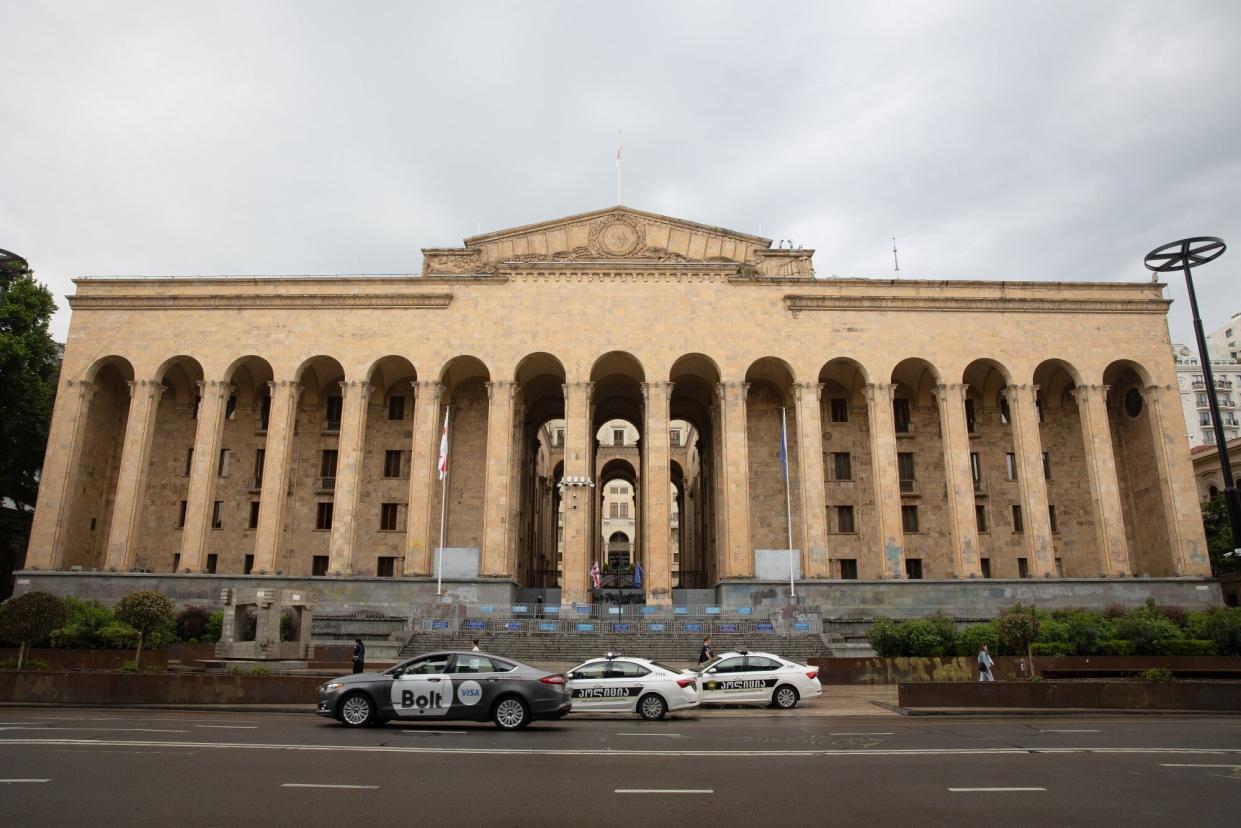Georgian Parliament Overrides Veto of ‘Foreign Agent’ Law

(Bloomberg) -- Georgian lawmakers overrode a presidential veto of a controversial “foreign agent” law on Tuesday, ignoring massive protests against what the US and the European Union have condemned as a “Kremlin-inspired” measure.
Most Read from Bloomberg
World’s Largest Nuclear Plant Sits Idle While Energy Needs Soar
Treasuries Hit as US Sales Struggle to Lure Buyers: Markets Wrap
New BYD Hybrid Can Drive Non-Stop for More Than 2,000 Kilometers
The ruling Georgian Dream party voted in parliament to adopt the law on the “transparency of foreign influence” over the objection of President Salome Zourabichvili. She has backed the protesters and warned that the legislation threatens Georgia’s ambitions of joining the EU and NATO.
The government said the law is needed to expose the funding of non-governmental organizations and independent media. It threatens fines and imprisonment for as long as five years for organizations or individuals that receive at least 20% of their income from abroad and fail to register with the government as “pursuing the interests of a foreign power.”
Riot police using tear gas, pepper spray and water cannon have clashed repeatedly with protesters who’ve gathered in huge numbers in the capital Tbilisi since the government announced plans for the law on April 3.
Zourabichvili, who addressed the crowds via video link, said those who voted in favor of the law, rejecting her veto, cannot change the country’s future.
“Let’s gather signatures and then I will call a referendum alongside the parliamentary votes in October,” the president said, adding that that will determine which way Georgians want to go, “to the European future or remaining slaves for Russia.”
The US and the EU say the law is similar to one Russian President Vladimir Putin used to crush pro-democracy groups in his country. US Secretary of State Antony Blinken responded last week by announcing a comprehensive review of cooperation with Georgia and a new visa restriction policy for individuals complicit in undermining democracy in the country.
The EU, which granted Georgia candidate status in December, has said that adoption of the law would jeopardize the Caucasus republic’s chances of opening accession talks with the bloc in the fall.
Georgian Prime Minister Irakli Kobakhidze dismissed those warnings as “insulting blackmail.” He has backed claims by Georgian Dream’s billionaire founder, Bidzina Ivanishvili, that a “global war party” in the West is plotting to oust the government using NGOs and to push the country into a war with Russia.
Zourabichvili on Sunday marked the country’s independence day by unveiling a “Georgian Charter” aiming to rally opposition parties ahead of planned parliamentary elections in October.
She urged parties to sign the charter committing them to repeal the law and back the creation of a technocratic government to reform Georgia’s judiciary, security service and central bank before calling fresh elections.
The government’s rhetoric is “anti-Western, anti-European, from the top to the bottom of the ruling party,” Zourabichvili said in a May 17 interview to Bloomberg TV. It’s using “very Russian language” to attack US and EU partners who’ve helped Georgia for 30 years, she said.
(Updates with president from fourth paragraph.)
Most Read from Bloomberg Businessweek
©2024 Bloomberg L.P.



